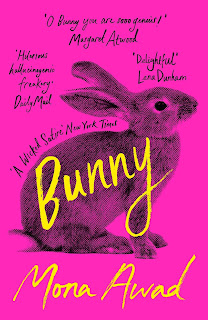Collections of micro fiction are rare. Collections of micro fiction by novelists are rarer still. I recently read The Fire Starters by Jan Carson, and loved its surreal lyrical qualities through which the devastating reality of living in Northern Ireland was explored. A month or so later I was browsing the online catalogue of The Emma Press and saw Postcard Stories (2017), illustrated by Benjamin Phillips. The title is in reference to how the book came about: ‘Every day in 2015, Jan Carson wrote a story on the back of a postcard and mailed it to a friend.’ The book contains 52 stories, one for each week, in which ‘Carson presents a panoramic view of contemporary Belfast.’
In her book, Going Short, Nancy Stohlman writes: 'One of my favorite approaches to writing a flash fiction story is what I call the zoom lens – taking an ultra close-up shot of what’s potentially a much bigger story. It’s like narrowing the focus from a wide-angle landscape to a single flower. In flash fiction, the single flower can be the whole world.' This zoom-lens approach is often used by Carson in her stories. One example is in August’s opening story in which the main character leaves her father in Ikea because ‘he was too old to go on.’ The actual story takes place in a slither of time, but it also encompasses the difficulties which arise from having to watch the struggles of an ageing parent: ‘I could see he was glad of the rest, glad to have the expectation lifted from him.’
Carson’s stories don’t have titles. Instead readers are given the week in which they were written, where and to whom. The last story, written in St George’s Market, Belfast, opens with ‘every year during the month leading up to Christmas, Eleanor takes a stall at St George’s Market and sells disappointment in small, hand-made bottles.’ There is a myriad of different disappointments and ‘it is mostly locals who buy from her. The tourists tend to skip straight from the felt handbag stall on her left to the organic candles on her right.’ Tania Hershman writes that ‘the reader more willingly accepts oddities and suspends disbelief in the ‘truth’ of such worlds than with a longer piece’ (Short Circuit). Carson takes full advantage of this in many of her stories; for example, a child is born with a bird’s egg in his/her hand or in the backseat of a car is a horse and a tunnel.
Over and over Jan Carson asserts her authority as a competent and compelling short fiction writer. Along with her astute insight, Postcard Stories is a wonderful collection of poignant and touching narratives.
Laura Besley is the author of three collections of flash & micro fiction: (Un)Natural Elements, 100neHundred and The Almost Mothers. She is also an editor for Flash Fiction Magazine. She tweets @laurabesley.












